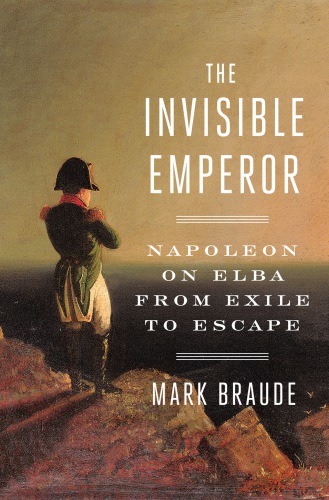
The Invisible Emperor
Napoleon on Elba from Exile to Escape
کتاب های مرتبط
- اطلاعات
- نقد و بررسی
- دیدگاه کاربران
نقد و بررسی

August 1, 2018
A history of Napoleon's short first exile, rendered in short, punchy chapters.The Treaty of Fontainebleau exiled the emperor to Elba and generously gave him sovereignty over the small island, which was rich in mineral deposits, featuring iron mines and good wine but poor soil. It certainly had no structure anywhere near sufficient to house the emperor. Accompanying him was Neil Campbell, a representative of England's government who was directed to act as an impartial observer but not an enforcer. Campbell had no power or control over the emperor and spent a good deal of his time away with his mistress. Counting on his promised annual allowance, Napoleon was free to build houses and roads, develop commerce, maintain a navy and army, and even claim the nearby fertile land of Pianosa. He appointed a governor and treasurer and formed a council to establish the appearance of a constitutional monarchy. His mother and sister even joined him in exile. The terms of the treaty would prove to be its undoing, as Napoleon never intended to stay long, and nothing in the treaty proscribed his leaving the island. Louis XVIII, newly restored to the throne, had no intention of paying the annual allowance, and Campbell strongly warned the Allies that Napoleon was short of funds even though he tried to collect back taxes. Braude (Making Monte Carlo: A History of Speculation and Spectacle, 2016) wonders whether he would have stayed if he were sufficiently funded. Perhaps, but he was there only 10 months and left with a flotilla of armed vessels. It's great fun reading about the Allies' attempts to predict his destination, and those anecdotes reinforce our knowledge of the emperor's great talents. His only mistake was leaving while the Allies were still gathered at the Congress of Vienna and able to quickly respond to his escape. Though not earth-shattering in his insights, Braude's unique focus will allow this book to sit comfortably alongside the countless other Napoleon biographies.A simply written, sturdy addition to the groaning Napoleon shelves.
COPYRIGHT(2018) Kirkus Reviews, ALL RIGHTS RESERVED.

September 15, 2018
Following decades of bloodshed and warfare, and under military pressure from an allied coalition led by Britain, Austria, Prussia, and Russia, Napoleon Bonaparte (1769-1821) reluctantly relinquished his position as Emperor of France and Italy in 1814. With the Treaty of Fontainebleau, he was exiled to the small Mediterranean island of Elba. While giving the appearance of settling into obscurity, Napoleon used his ten months of seeming retirement to fortify the island, build a small fleet, and gather an armed expeditionary force that later crossed to the mainland. Based on extensive research of primary sources, historian and author Braude (former fellow and lecturer, Stanford Univ.; Making Monte Carlo) effectively presents Napoleon's seen and unseen activities on Elba against the larger picture of European politics of the time. The result is an intriguing look at a still controversial public figure during an often overlooked historical period. VERDICT For readers of French history, there is little about the Napoleonic legend that isn't fascinating, and as Braude proves, the time spent on Elba is no exception.--Linda Frederiksen, Washington State Univ. Lib., Vancouver
Copyright 2018 Library Journal, LLC Used with permission.

























دیدگاه کاربران